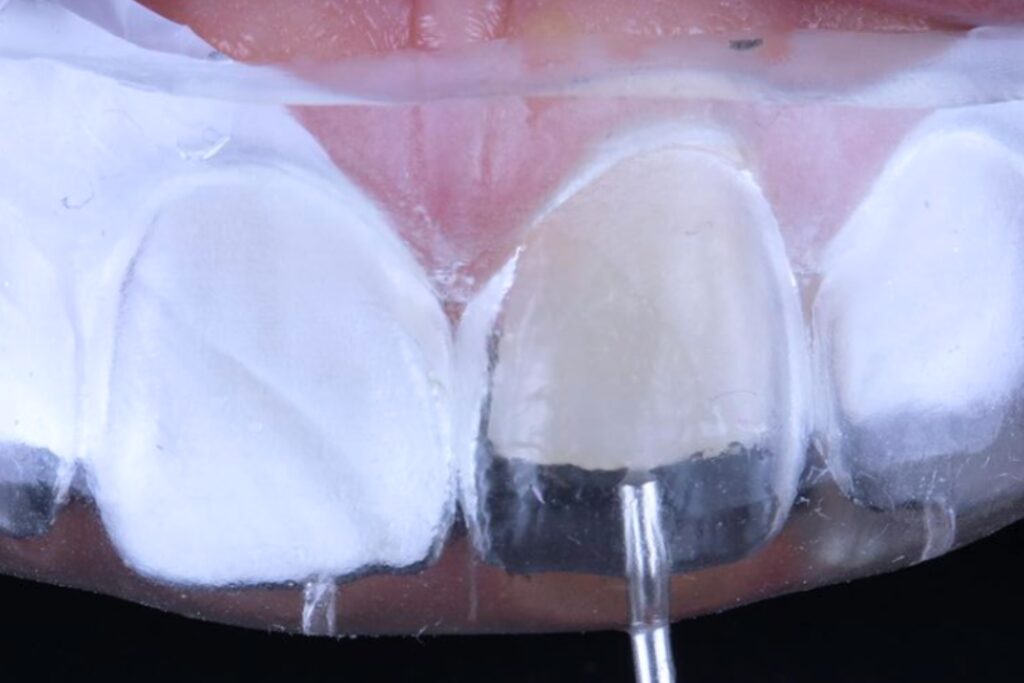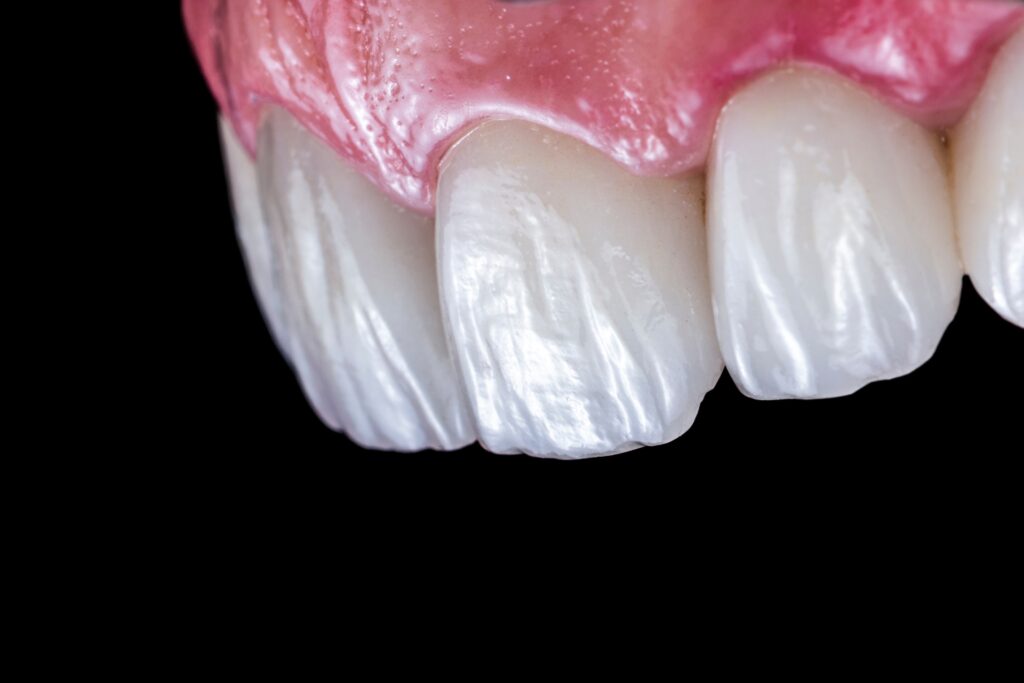What are injected veneers?
Introduction
Injected veneers are a technique in cosmetic dentistry that allows patients to obtain a more beautiful smile more quickly and less invasively than with traditional veneers. This type of veneer is manufactured by injecting a material, usually a resin or ‘filling’, directly onto the teeth, which allows for a natural and very attractive aesthetic result. In this blog, we will explain in detail the advantages and disadvantages of injected veneers and answer the most frequently asked questions that patients usually have about this treatment.


Injected veneers advantages
- Less invasive procedure
Unlike porcelain veneers, which require the tooth enamel to be worn away, pressed veneers are applied directly to the tooth without the need for major tooth reduction. It is important to note that if you wish to change the colour of your teeth or prefer a whiter shade, your teeth may need to be lightly polished to create the necessary thickness to achieve the colour change. Fast results
As this is a direct treatment, it is not necessary to go through a provisional phase. However, it is recommended to visualise the result before the treatment by means of a simulation in the mouth. This is very important to make sure you like the result before making it definitive.Lower cost
Pressed veneers are usually less expensive than porcelain veneers, making them a more affordable option for those looking to improve their smile without breaking the bank.Reversible
This type of veneer can be removed if the patient wishes. However, they function like a filling: once bonded to the tooth, they require the use of a drill to remove them.Natural appearance
The composite material used in the pressed veneers allows the shade and shape to be adjusted, achieving a very natural and harmonious appearance with the rest of the dentition.
Injected veneers disadvantages
- Lower durability
This type of veneer is considered a temporary treatment. Although pressed veneers offer a good aesthetic result, their durability is lower than that of porcelain veneers, with a lifespan of maximum 5 years, depending on patient care. Staining risk
Composite material is more prone to staining over time, especially if the patient smokes or consumes beverages such as coffee, wine or tea frequently. This implies the need for more frequent maintenance.Lower crack resistance
Pressed veneers are not as strong as porcelain veneers, which increases the risk of fracture or wear over time, especially at the edges of teeth.Not recommended for all cases
Not all patients are ideal candidates for pressed veneers. In cases where teeth are very dark in colour or a different colour to that desired by the patient, or in cases where teeth are badly damaged or poorly positioned, it may be necessary to resort to other more invasive treatments.
Injected Veneers FAQ's
1. Are injected veneers permanent?
No, injected veneers are not permanent. Their duration depends on the patient’s care, but they generally require replacement or adjustments after 5 years.
2. Will they damage my natural teeth?
Injected veneers are bonded to the tooth like a filling. To remove them, a drill is necessary, and it is virtually impossible to remove them without chipping or scratching the enamel. However, if you choose a suitable case and the right shade, it is a very conservative technique.
3. How long does it take to place the injected veneers?
Most injected veneer treatments require 3 appointments: first, photos are taken and a 3D scan of the mouth is performed; at the second appointment a mouth simulation is performed; and at the third appointment the injection is performed, which is usually laborious and can take approximately 3 hours, depending on the number of teeth.
4. Do I need special maintenance for injected veneers?
Yes, although they do not require excessive care, it is important to maintain good oral hygiene, avoid biting hard objects and moderate consumption of drinks that can stain them, such as coffee or red wine. It is advisable to polish and maintain them at least once a year.
5. Can I eat and chew normally?
Yes, injected veneers allow the patient to chew normally. However, it is important to avoid habits such as biting nails, pencils or very hard foods that could damage the material.
6. Are injected veneers better than porcelain veneers?
It depends on the patient’s needs. In general, it can be said that injected veneers are less invasive and more economical, but each has its own indications. With injected veneers, small modifications or colour changes are sought. It is important to consult a dentist to determine which is the best option for you.
Conclusion
Injected veneers are an excellent option for those who wish to improve the aesthetics of their smile in a quick and minimally invasive way. However, it is important to know both their advantages and limitations before deciding on this treatment. If you are considering improving your smile with injected veneers, do not hesitate to contact a specialist such as Dr. Bruno Pereira, so that he can give you personalised advice and offer you the best option according to your needs.

